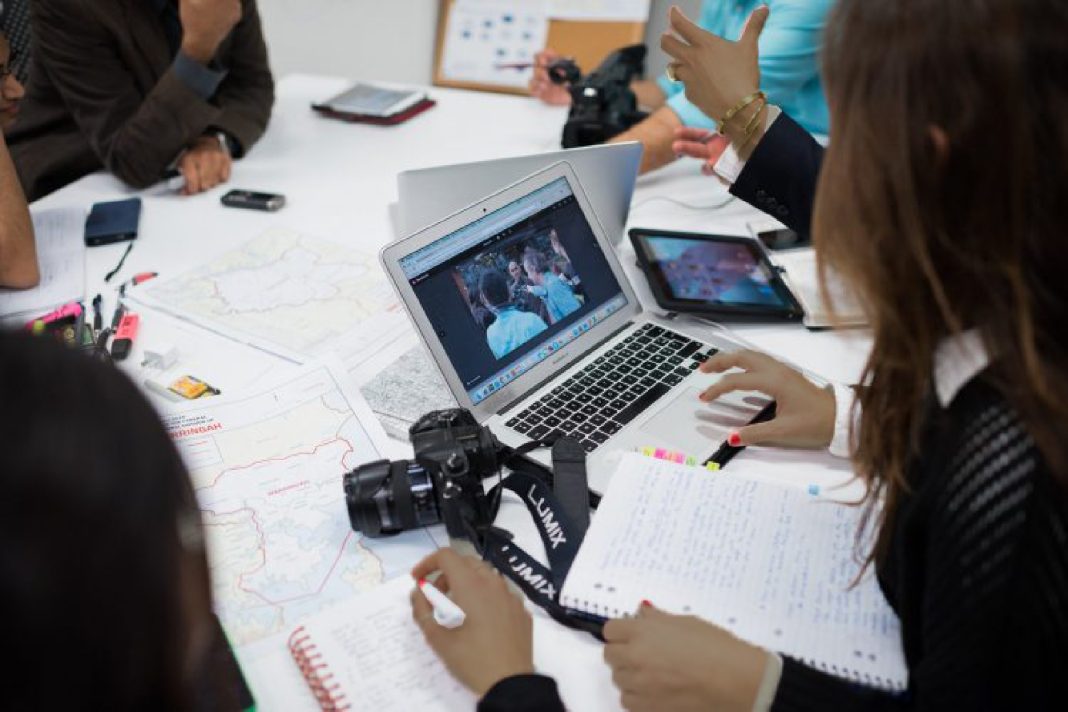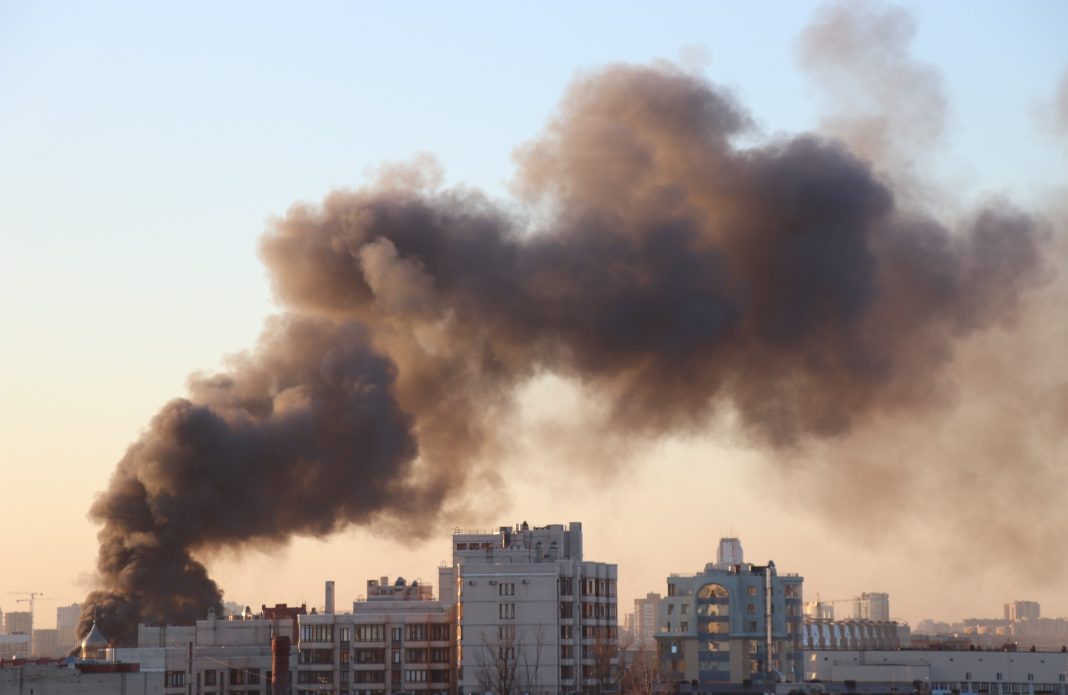When the tantalizing concept of an “information superhighway” first appeared in 1993, it was held out as rivaling the railroads and airlines in revolutionizing and connecting the world. In many ways, it has, creating previously unimaginable opportunities for journalists to have their work reach a global audience. But a report published Feb. 14 by the International Center for Journalists shows in graphic terms that the internet also created dark alleys of hate, misogyny and violenceaimed at female journalists.
The ICFJ report details two case studies involving online threats against Rana Ayyub, a Post Opinions contributor and courageous investigative journalist in India, and Ghada Oueiss, a no-nonsense Al Jazeera Arabic anchor. The studies, carried out by the center’s research team in cooperation with computer scientists at the University of Sheffield, examined about 13 million tweets involving Ms. Ayyub that were sent between Dec. 12, 2019, and March 1, 2022, and more than 150,000 tweets involving Ms. Oueiss sent between Sept. 3, 2021, and March 1, 2022, as well as other disturbing evidence.
Ms. Ayyub is known for her undercover investigation of the Gujarat riots of 2002, in which some 800 Muslims were killed, and extrajudicial killings implicating the current Indian prime minister, Narendra Modi, who was then chief minister of Gujarat, and his associates. Today, “an army of trolls” from Mr. Modi’s ruling Hindu nationalist Bharatiya Janata Party “threaten Ayyub at scale; on a daily basis,” the report says. Her sharp criticism of the BJP and Hindu nationalism trigger “viral smear campaigns” that target her “at a deeply personal level,” threatening death and rape; they are “deeply misogynistic and redolent of religious bigotry.” The onslaught creates a major risk of “morphing into physical violence,” the report says, and is intended to “undercut public trust in her journalism.”
Some 222 Nicaraguan political prisoners left that Central American country for the United States in February. President Daniel Ortega released and sent them into exile in a single motion. Nevertheless, it appears that Mr. Ortega let them go under pressure from economic sanctions the United States imposed on his regime when he launched a wave of repression in 2018. The Biden administration should keep the pressure on. Read recent editorials about the situation in Nicaragua.
Inflation remains stubbornly high at 6.4 percent in January. The Federal Reserve’s job is not done in this fight. More interest rate hikes are needed. Read a recent editorial about inflation and the Fed.
Afghanistan’s rulers had promised that barring women from universities was only temporary. But private universities got a letter on Jan. 28 warning them that women are prohibited from taking university entrance examinations. Afghanistan has 140 private universities across 24 provinces, with around 200,000 students. Out of those, some 60,000 to 70,000 are women, the AP reports. Read a recent editorial on women’s rights in Afghanistan.
A new study finds that half the world’s mountain glaciers and ice caps will melt even if global warming is restrained to 1.5 degrees Celsius — which it won’t be. This would feed sea-level rise and imperil water sources for hundreds of millions. Read a recent editorial on how to cope with rising seas, and another on the policies needed to fight climate change.
A court in mid-December sentenced Istanbul’s popular mayor, Ekrem Imamoglu, a political rival of the president, to more than two years in prison on the charge of “insulting public figures.” If confirmed on appeal, his conviction would bar Mr. Imamoglu from seeking public office. Mr. Erdogan has a long history of suppressing critics and competition. Read our recent editorial.
Twitter “is the main vector” for the attacks, and the platform “has utterly failed to protect the journalist,” the report says. Theonline strafing comes “at a very high speed, sometimes within seconds of her posting a tweet” and is “highly unusual,” possibly signaling “coordinated campaigns of abuse.” Twitter did not answer our request for an explanation of why the platform allows this to happen.
Ms. Oueiss, too, is subject to this relentless abuse for her hard-hitting reporting. “Over one third of the clear personal abuse we detected being directed at Oueiss on Twitter over a six-month period was misogynistic, sexist or sexually explicit,” the report says. “She lives in fear of ending up like her brutally murdered colleague Jamal Khashoggi,” also a Post contributor, who received “online threats prior to his assassination in 2018,” the report says. Forty-seven percent “of the abuse hurled at Oueiss in our dataset is designed to discredit her professionally,” which the authors said was the highest in seven case studies they have made of gender-based online violence.
The ICFJ report was published in coordination with “Story Killers,” a reporting project led by the Paris-based journalism nonprofit Forbidden Stories, which seeks to complete the work of journalists who have been killed. The Post is a participant in the project.
Exposing these smear campaigns to public view is just a first step. Next, Twitter and other platforms should redouble their efforts to filter out and block the flood of abuse aimed at these fine journalists. To recover at least some of the high-road aspirations of the early internet age, the roving crowd of trolls and haters should be identified and banished.
Original link – https://www.washingtonpost.com/opinions/2023/02/20/women-journalists-online-attacks-report/?fbclid=IwAR3Jnj4IY378NO7xIA7hl1Ak2a_DVPNgA9H2-su_5m3pnmIzt5EGCa2MKTA




